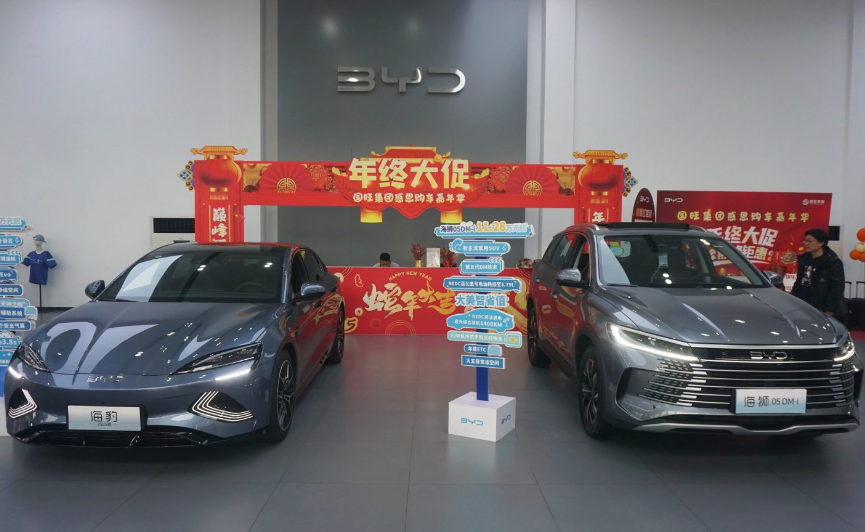Chinese automaker BYD saw a significant surge in sales toward the end of last year, positioning itself as a strong contender against Tesla for the title of the world’s top electric vehicle (EV) manufacturer in 2024.
The company reported selling 207,734 EVs in December, bringing its total annual sales to 1.76 million. This growth was fueled by subsidies and discounts, which helped attract more customers.
Tesla is expected to release its quarterly sales figures later on Thursday. While Tesla held a slight lead over BYD in the previous quarter, the Shenzhen-based company has been steadily closing the gap.
BYD’s total vehicle sales surged by over 41% in 2024 compared to the previous year, largely driven by the strong performance of its hybrid vehicles.
The company has benefited from an increase in car sales in China, where fierce competition has pushed prices down, and government subsidies have encouraged consumers to replace old cars with more fuel-efficient or electric options.
BYD sells 90% of its cars in China, where it has been steadily increasing its market share, outperforming foreign brands like Volkswagen and Toyota.
This rise of BYD and other Chinese EV manufacturers contrasts with the struggles of traditional carmakers in key Western markets. For example, Honda and Nissan recently confirmed they are in merger discussions to counter the growing competition from Chinese automakers.
In December, Volkswagen reached an agreement with the IG Metall trade union to avoid plant closures and immediate job cuts in Germany, after warning that it might need to shut down plants to reduce costs. Meanwhile, Carlos Tavares, the CEO of Stellantis, which owns brands like Vauxhall, Jeep, and Peugeot, resigned unexpectedly after a boardroom dispute, following a profit warning two months earlier.
In the third quarter of 2024, BYD reported a revenue of over 200 billion yuan ($28.2 billion), surpassing Tesla for the first time. This was a 24% increase compared to the same period last year, outperforming Tesla’s $25.2 billion in revenue for the same quarter. However, Tesla still outsold BYD in terms of electric vehicle sales.
Chinese EV manufacturers have been working to expand their sales outside of China, but they have faced obstacles in major markets. In October, the European Union imposed tariffs of up to 45.3% on Chinese-made EVs, and the U.S. has also placed a 100% tariff on Chinese EV imports, with further tariffs expected under President-elect Donald Trump.
BYD has been expanding into emerging markets but faced a setback in Brazil, its largest international market, when construction of a new factory was halted due to allegations that workers were living in poor conditions. BYD has since severed ties with the construction firm and reiterated its commitment to complying with Brazilian laws.














